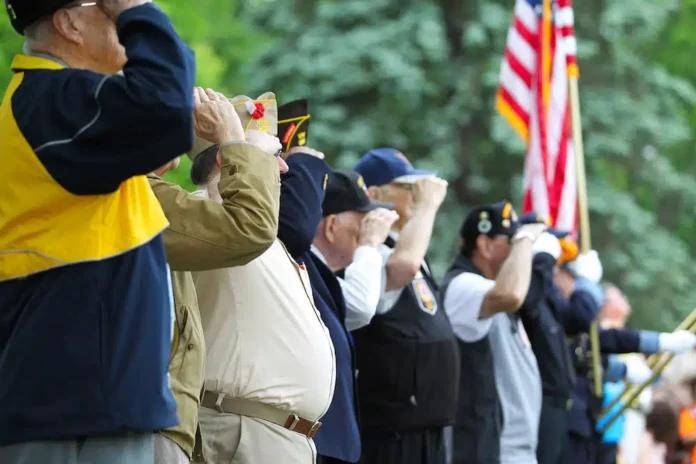Mesothelioma, a severe form of cancer primarily caused by asbestos exposure, affects many individuals, particularly those with a history of prolonged asbestos contact. Typically found in industrial environments, asbestos was also extensively used in military applications, exposing many service members. Mesothelioma’s latency period can span decades, making early detection challenging. Symptoms often resemble less serious conditions, leading to misdiagnosis. Treatments include surgery, chemotherapy, and radiation, but early diagnosis is crucial for effectiveness. It’s vital for everyone, especially veterans who may have been exposed during service, to understand these risks and seek regular health screenings for early detection.
If you’re a military veteran, and you may have been exposed to asbestos in the past, it’s important to understand the signs and symptoms of mesothelioma – as well as the potential benefits that you could receive as a result of developing this condition.
What are the most important things to know about this deadly disease? And how can you get the compensation that you and your family deserve?
A Primer on Mesothelioma

Let’s start with a primer on mesothelioma. Mesothelioma is a particularly aggressive and rare form of cancer, affecting one of several areas of the body based on where the person was exposed to a carcinogenic material. Nearly all cases of mesothelioma emerge as a result of exposure to asbestos, which is a particular type of building material that’s no longer in circulation, but was once used across many different industries.
When you inhale or ingest mesothelioma fibers, these tiny, jagged materials cause significant damage and lodge themselves in, eventually causing the production of malignant cells. Because this disease is so aggressive, mesothelioma grows and spreads rapidly, causing worsening symptoms.
Unfortunately, mesothelioma is almost always fatal. There are several treatment options available, but none of them can reliably cure or eliminate this disease before the person who has it perishes.
Why Veterans?

Why is it important for veterans to know about mesothelioma?
Veterans account for nearly a third of all mesothelioma cases in the United States. If you served in the military during a time when asbestos was widely used, you’re at significantly higher risk of developing this disease than other people – including other people who have been exposed to asbestos in limited ways.
Asbestos was widely used in military applications, and for many decades, because of the key properties that made asbestos attractive.
- Flame resistance. Asbestos is naturally resistant to flames. It’s not quite fireproof, but it can greatly improve the fire resistance of any building.
- Heat resistance. Similarly, asbestos is resistant to heat. It’s an excellent insulating material that can be used in many military applications.
- Durability. On top of that, asbestos is durable. It holds up well over time and isn’t subject to significant degradation.
- Versatility. This material can also be used in various applications and for different purposes, making it widespread throughout the military.
- Ease of working. Construction professionals found asbestos to be an easy material to work with, increasing its attractiveness as an option.
- Inexpensiveness. Asbestos was also very cheap. It could cost effectively be integrated into almost any project.
In the heyday of asbestos use, people didn’t realize just how deadly asbestos could be. These days, asbestos is almost never used, and there are asbestos remediation specialists who can remove this material from affected areas.
What else do veterans need to know about mesothelioma?
There Are Three Types of Mesothelioma

There are three main types of mesothelioma, based on how you were exposed to asbestos.
- Pleural. Pleural mesothelioma is the most common, affecting the lungs.
- Peritoneal. Peritoneal mesothelioma is less common, affecting the abdomen.
- Pericardial. Pericardial mesothelioma is much rarer, affecting the heart.
Symptoms Vary Significantly
Symptoms of mesothelioma vary significantly, based on the type of mesothelioma you have and how far it has advanced. In the early stages, symptoms may be hardly noticeable, such as a mild cough or stomachache.
But as the disease develops, these symptoms may grow in severity to the point they’re impossible to miss; for example, you may cough up blood or have drastic, unexplained weight loss.
Treatment Options Vary

While mesothelioma is almost always fatal, there are many treatment options available to stave off the symptoms and prolong lifespans. Depending on the location and severity of the affliction, medical providers may recommend surgery, chemotherapy, radiation therapy, or other treatments.
Preventive Measures
Preventive measures are crucial for veterans and others potentially exposed to asbestos. Minimizing further exposure is essential. This involves being aware of and avoiding environments with deteriorating insulation, tiles, or other materials likely to contain asbestos. Regular health check-ups, particularly lung screenings, are vital for early detection of any asbestos-related conditions. Additionally, maintaining a healthy lifestyle, including a balanced diet, regular exercise, and avoiding smoking, can strengthen the body’s defenses against potential diseases. For veterans, specific health services and screenings may be available through veteran affairs programs, offering tailored support for those with a history of military asbestos exposure.
Veterans With Mesothelioma May Qualify for Certain Benefits

Through the VA, veterans may qualify for certain benefits if they’ve been in contact with asbestos and have developed a health condition as a result of that exposure.
- Veterans with VA health insurance can access VA hospitals for treatment.
- Veterans with mesothelioma may qualify for VA disability compensation.
- Veterans with mesothelioma not connected to service may qualify for VA pension benefits.
- Veterans who have died from mesothelioma may have spouses and dependents who qualify for Survivors Pension or Dependency & Indemnity Compensation (DIC).
Keep in mind that you’ll need to provide both service records and medical records, along with the opinion of a medical professional that your health condition was caused by asbestos exposure, in order to qualify for these benefits.
Veterans who have been exposed to asbestos are at high risk of developing mesothelioma, a deadly and rare form of cancer. If you believe you’ve been exposed to asbestos in the military, it’s important to keep a close eye on your health and seek treatment as soon as possible.







